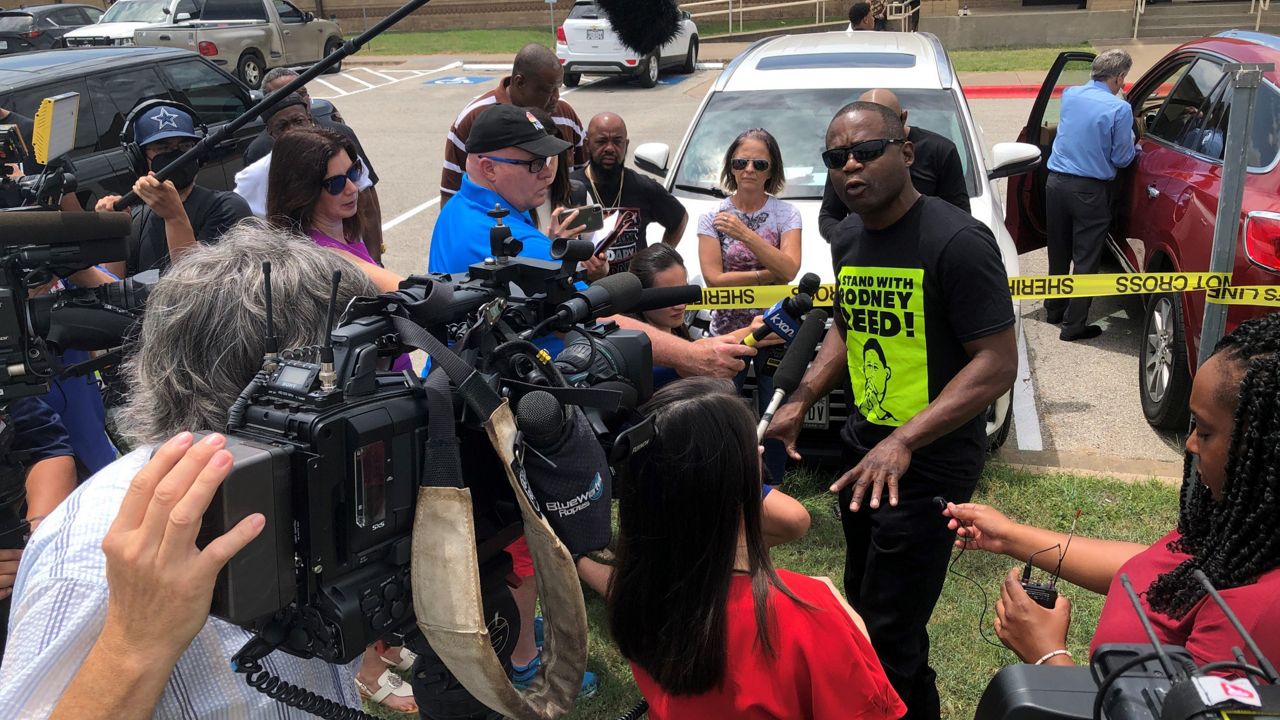BASTROP, Texas — An evidentiary hearing began Monday in Bastrop County for death row inmate Rodney Reed in the latest attempt to overturn his conviction for the rape and murder of Stacey Stites in 1996.
Reed has maintained his innocence while in prison and was granted a stay of execution in November 2019 by the Texas Court of Criminal Appeals.
The case is being heard in Bastrop County. Reed's defense says they plan to present new evidence and witnesses, and claim prosecutors withheld information during his initial trial.
The evidentiary hearing is expected to last two weeks, and could lead to a new trial for Reed if the judge rules the new evidence warrants it.
Both sides gave their opening statements, and Reed’s attorneys did not hold back.
His lawyers claim they have evidence that Stites' fiancé, Jimmy Fennell Jr., murdered her after discovering she was having an affair with Reed.
The defense also claimed that the state both withheld evidence and used false evidence that influenced the jury to convict Reed in his original trial, saying the state knew that Stites and Fennell’s relationship was in trouble, Reed and Stites knew each other, but didn’t disclose it.
On April 23, 1996, 19-year-old Stites failed to show up for work at an H-E-B grocery store in Bastrop. Later that day, she was found dead, a victim of strangulation, on the side of a road in Bastrop County.
Investigators concluded that Stites had been raped. Stites’ fiancé, Jimmy Fennell, a Giddings police officer at the time, was the initial suspect. However, DNA evidence did not match Fennell’s profile and the case went cold for a year. Fennell would later serve a 10-year prison sentence for raping a woman in his custody while he was a Georgetown police officer.
The defense called three witnesses Monday. The defense’s first witness was Dr. Andrew Baker, a forensic pathologist who said a lot of the medical testimony in the original trial was incorrect, including the time of Stites’ death, a key part of the state’s original case.
One of the witnesses the defense called up was Charles Wayne Fletcher. He worked for the Bastrop County Sheriff’s Office in the '90s and was friends with Fennell.
Fletcher said about a month or so before Stites was murdered, Fennell told him he thought Stites was having an affair with a Black man, but he said it in much more offensive and explicit terms.
The defense also called up Ruby Volek. She works in life insurance and said Fennell worked as part of their security at some of their events.
Volek says she heard Fennell tell Stites that if he ever caught her messing around on him he would kill her and no one would know.
Reed’s family said they are hopeful about his case.
"I don't know what the state's going to come back with, all I know is we stand on the truth.” Roderick Reed said. “I know that my brother did not commit these crimes, there's testimony, there's medical and forensic science...what do they say to that?"
The state countered in their opening argument that the fundamental facts in the case haven’t changed, while the defense has changed their story multiple times.
The state said Stites was a 19-year-old in love, she was 17 days away from marrying Fennell and was ridiculously excited about it. Although Fennell was initially a suspect, after thoroughly investigating, law enforcement was not able to make a case against him.
Prosecutors said Stites’ death was a tragedy, but it is almost as much of a tragedy that 25 years later they are still here defending what they called a righteous prosecution and case.
The state is calling its witnesses next week.
Two of Stites’ surviving sisters attended the hearing, and had been subpoenaed by federal and state judges.
A number of Reed’s family members and supporters also attended.
A complete timeline of the Reed case is available here.



